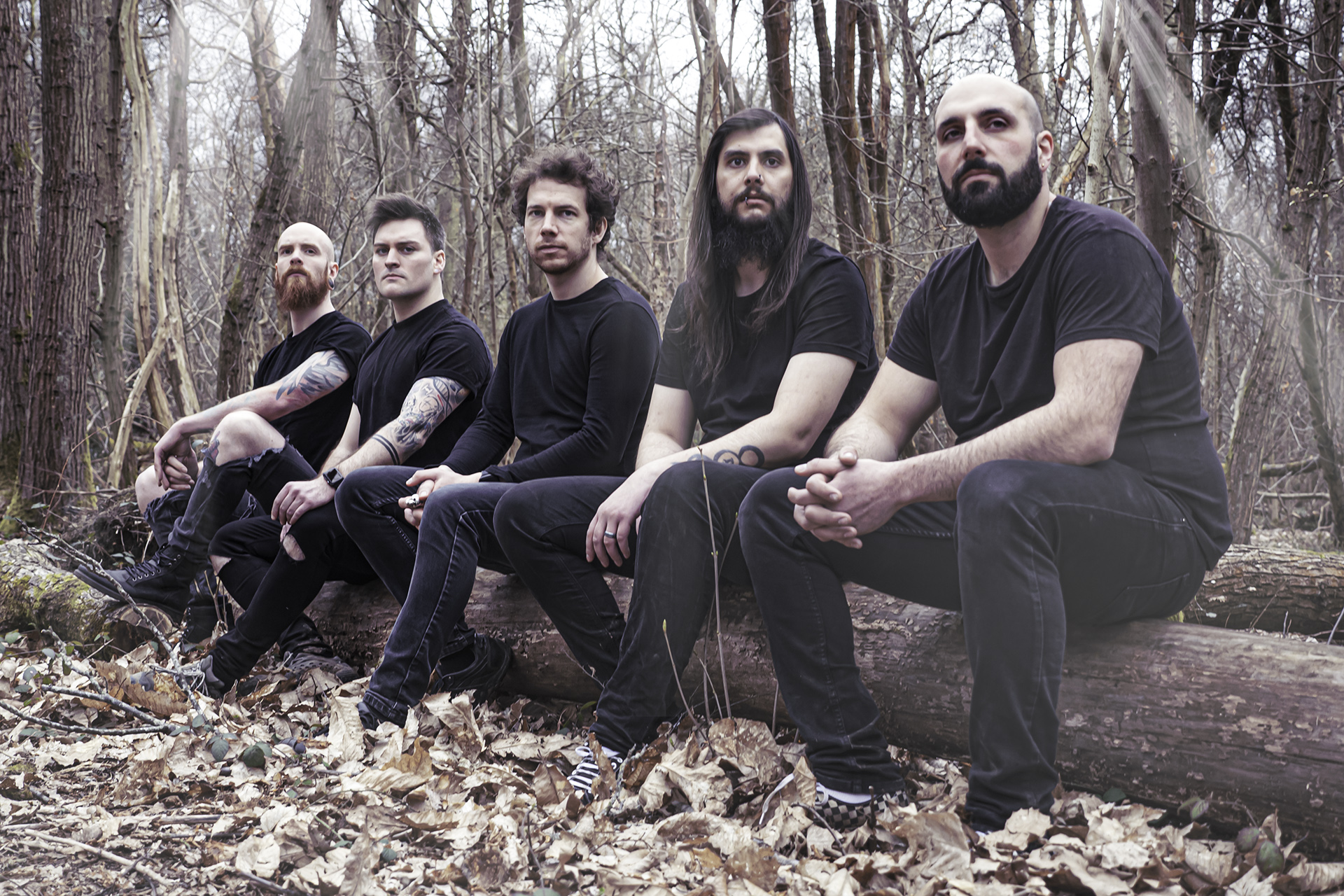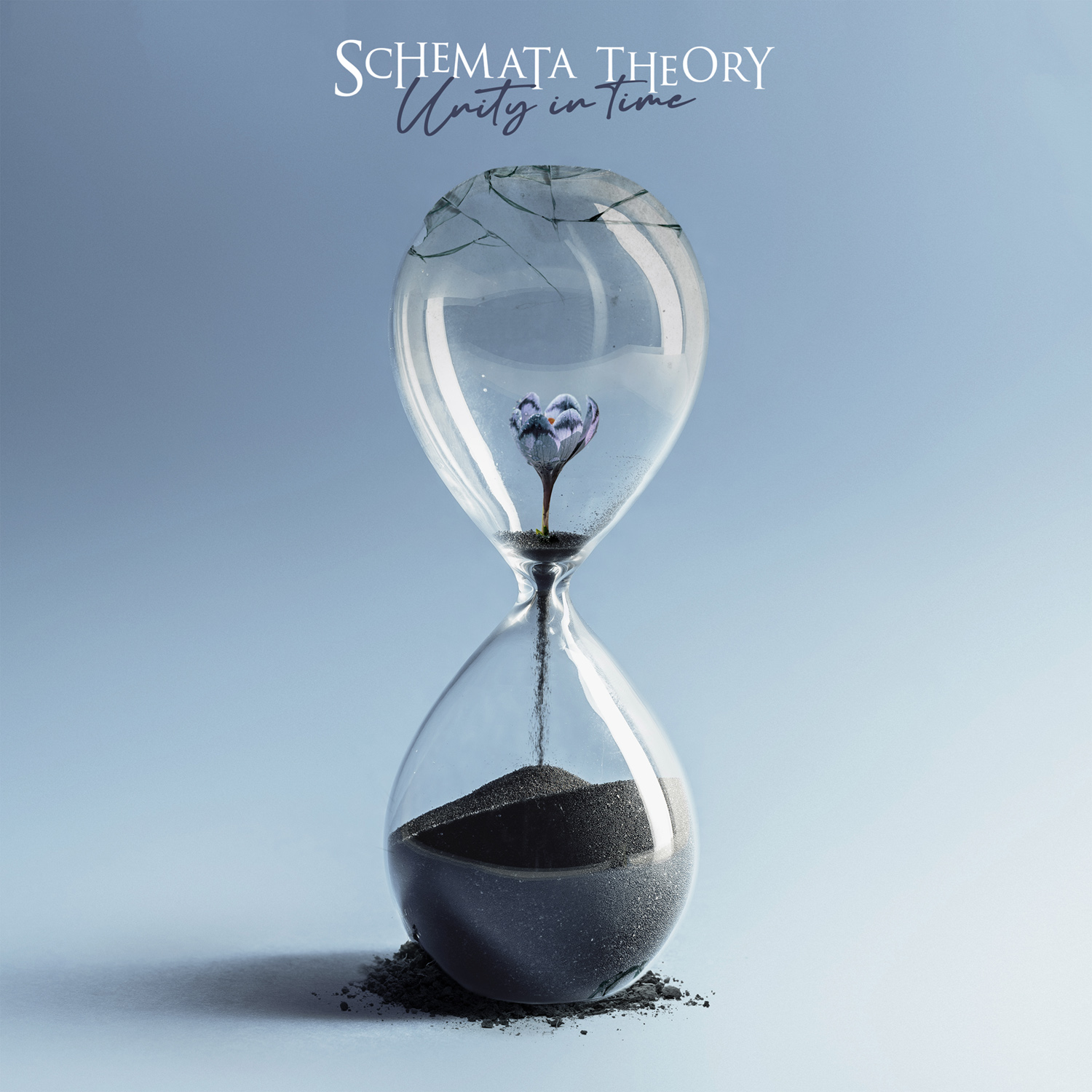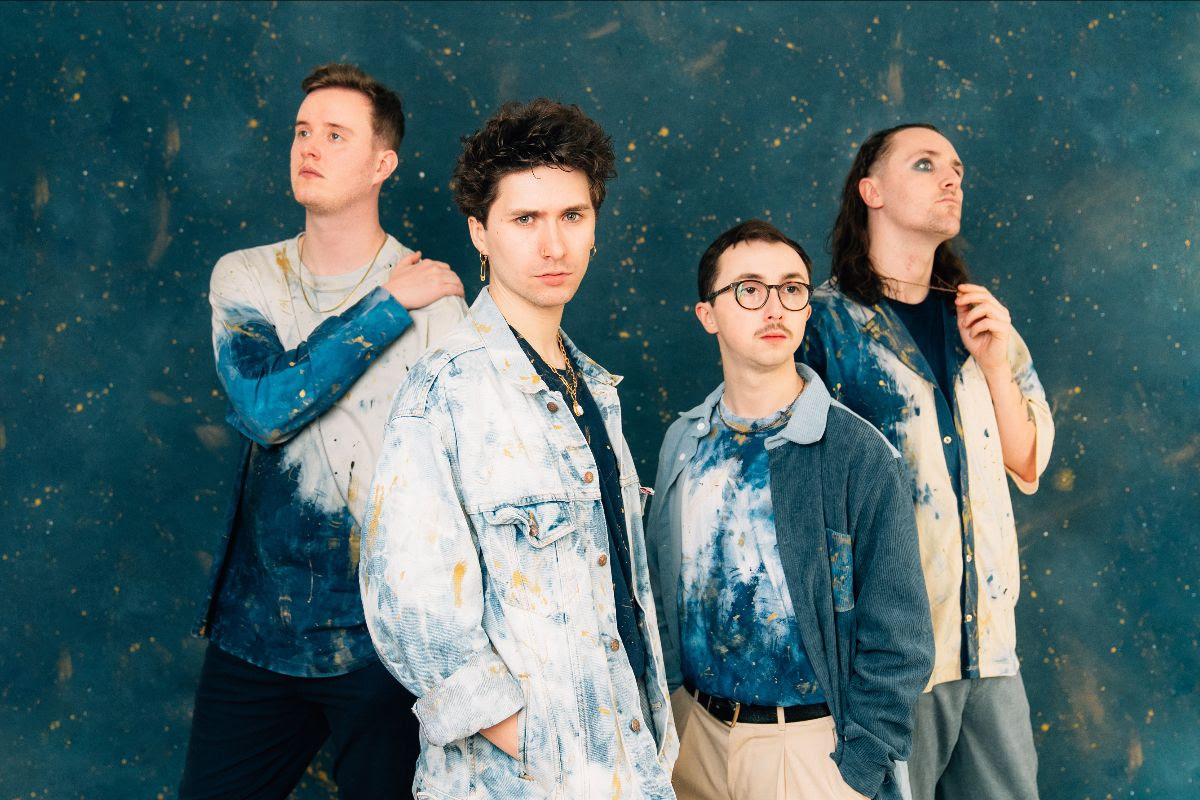Alternative/Rock
Schemata Theory’s Myles Dyer on Connecting with Nature, Societal Challenges, and Album ‘Unity in Time’
Post-hardcore band Schemata Theory have plenty to say on their new record, ‘Unity in Time,’ so we spoke to vocalist Myles Dyer to get the low-down.

Digging into the material for their new album, the brilliant Unity in Time, it’s clear that British progressive post-hardcore band Schemata Theory had a lot to say. Wrapped around a sound inspired by the likes of Killswitch Engage, Enter Shikari and Funeral For A Friend, the band explored themes of unity, societal challenges, climate change and anxiety.
An album that offers plenty of food for thought, Unity in Time is very much a soundtrack to modern times, so it seemed only fitting to sit down with vocalist and lyricist for the band Myles Dyer to chat about some of those themes and plenty more. Make sure you check out the album while you’re reading what Myles had to say.
Thanks for your time. Given the subject matter, now seems like the perfect time for the release of an album like Unity In Time…
Myles Dyer: “Yeah. We certainly had plenty of things to pull inspiration from when writing the album. But as time passed, the themes and messages definitely felt increasingly relevant. I’m not surprised, though. When we deal with topics as a band, we tend to go with themes as opposed to specific instances. And the themes we’ve covered have been on a trajectory for a while now.”
Let’s talk about the excellent album, then, and how much inspiration recent daily life has had on the material?
“Thank you for the kind words. It’s difficult to quantify inspiration because a lot of osmosis takes place in day-to-day life when writing an album. I can’t just sit there and write lyrics for an entire song. Instead, I will always have a note app on my phone, or a scrap piece of paper at the ready should anything come to mind while going about my day. From news stories to things I witness when out and about, or conversations with others – these all feed into that process. However, when it comes to our psychologically themed songs, about what it is to endure adversity and build resilience, sure, these have been more directly inspired from personal experience.”
“The struggle continues as we all try to create and develop much-needed connections”… do you think as people we can recover from the fact that for the past two years, we’ve all essentially been faces behind a screen?
“I do. I think the dichotomy of digital connection isn’t a new dilemma, though. The internet has allowed us to be more connected with people around the world than ever before whilst simultaneously allowing us to feel more alone. I think those that have struggled with the disconnect through the pandemic will be eager to reconnect with others and make the most of any opportunity that comes up to do so. However, there will be others that actually prefer the space this new way of life has given them and perhaps decide to live a life more of solitude. And that does not necessarily have to be a bad thing.
“Different people like to live in different ways, and I think if the last two years have shown us anything, it is that we need a society that provides a diversity of opportunities for these differences.”
From your own perspective, how challenging has that been and how helpful has it been to have the band as a creative and emotional outlet?
“It’s definitely been a challenge for us all. We finished recording the album literally weeks before the pandemic had arrived in this country. So, on the one hand, we felt lucky to have completed it by then, but on the other… When it came to the release, there was a whole new set of challenges. From meeting up to practice to organising music video shoots to playing live shows. All of this had to go and hold. We weren’t prepared to release ‘Unity in Time’ until we knew there was an opportunity to do all these things. And no one knew how long lockdowns and everything else was going to last. Anyone creative will know how difficult it is to finish a creation and then not be able to release it straight away. But we knew it was important to hold on for what we regard as our best release yet.”
One of the things you discuss is our detachment from nature due to the advancement of technology in the 21st century. Firstly, how have you counteracted that detachment in your own personal lives?
“Well, actually, I think many people have reconnected with nature these past few years. I definitely found myself going on more walks during the pandemic, and that has continued in my life as someone who now works remotely from home. Lunchtime walks are wonderful. And it’s not just the fact I’ve been going on more walks, but I’ve been paying more attention to my surroundings when doing so. Whether it’s forest bathing or just observing wildlife, I’ve developed a much deeper relationship & appreciation for the natural world.”
Secondly, do you think that this detachment has been speeded up by the lockdown and would have happened anyway?
“Some elements have sped up, yeah. I know a lot of people – especially in the cities – were making the most of food delivery services and ordering online more often. Then there were all of the disposable PPE and Covid tests which resulted in a huge increase in plastic usage. When things become normalised, it’s easy to accept them as being okay. But at a time when we need to urgently embrace more sustainable lifestyles with our use of energy and materials, there have been some major setbacks. However, on the flip-side, with more people working from home and therefore travelling less on commutes, that is an example where nature will benefit. There is no doubt in my mind that the pandemic has really shaken things up in ways that would not have happened otherwise.”

Artwork for ‘Unity in Time’ by Schemata Theory
Finally, what can we do to learn from it and recover from it?
“Well, we’re all online more. The internet is an ‘infinity machine’ that provides endless opportunities for us to expand our knowledge, learn and evolve our behaviours. Unfortunately, the digital world of mass information comes with its challenges with many platforms that dehumanise us and allow for toxic behaviours to form that wouldn’t necessarily occur in reality. The digital world is a double-edged sword, something that we definitely explore a lot in our new album.”
On the positive side though, there has been some good come out of technology in the past two years wouldn’t you agree?
“Oh, for sure. Funnily enough, depending on how I start a conversation will determine whether people think I’m an optimist or a pessimist. If I start by talking about problems, people can say, “Myles, you are such a pessimist!” to which I respond, “But I haven’t told you what we can do about it yet.” And if I start with awesome developments in politics, science and tech, people can say “Myles, you are such an optimist!” to which I respond, “But I haven’t told you what is at stake if we become complacent and don’t proactively try to do something about it.” I’m generally an optimist, having met so many brilliant people from around the world working on remarkable things. That doesn’t take away from the fact there are moments I suffer with existential dread and anxiety with everything that is going on at the moment.”
As life moves to the new norm, how would you hope humanity changes as a result of the experiences of the past two years?
“Develops more compassion, for each other but also for ourselves. The pandemic has definitely shown some ugly sides of human nature, but there have been countless examples of people showing solidarity and supporting their local communities. During the pandemic, I spoke to neighbours in my street for the first time. I know many people reflected on what’s important to them in life… made changes in their professional life, developed new skills or health routines. So my hope is we see a trajectory continue where global solidarity matures – but there are plenty of things happening at the moment which put that at risk.”
From your own experiences, what is the biggest lesson you have learned about yourself over the past two years?
“Ahhh, that’s a tough one. THE biggest? Let me try one of the biggest lessons, haha. I made some pretty big breakthroughs with my mental health & wellbeing. Developing self-compassion and a greater sense of control. There will still be days when I struggle, but I do look back and am so glad I’m on the path that I’m on now.”
And from a band’s point of view, the advancements in technologies must offer up a wealth of new opportunities for the band to explore. Where do you see the band heading visually and musically going forward?
“In many ways, there’s never been a more exciting time to be a musician. The range of outlets distributing your music is vast and diverse. We are always looking for new ways for people to engage with our music. One example would be for our single ‘New Vision’, we commissioned a mapper for the popular virtual reality game ‘Beat Saber’ to create maps for it. These were then distributed online and we were able to see Beat Saber players around the world play along to our track and amaze us in most instances with their skills. Twitch was a fantastic platform for this where we were able to see people from around the world, via mixed reality setups, engage with the song with physicality. We were blown away by the response and would love to set up more projects like this in future.”
Moving forward then for the band, you have a tour coming up… what are your plans for the rest of 2022
“We will be returning to the road this summer. People can find our tour dates @ schematatheory.com/tours.”
Thanks for your time and good luck with the album/tour. Over to you to wrap this up…
“Appreciate the opportunity to talk about Unity in Time. For anyone interested, please search us wherever you get your music, save the album, listen, digest and let us know what you think. We love hearing people’s thoughts!”
-

 Music4 days ago
Music4 days agoTake That (w/ Olly Murs) Kick Off Four-Night Leeds Stint with Hit-Laden Spectacular [Photos]
-

 Alternative/Rock6 days ago
Alternative/Rock6 days agoThe V13 Fix #010 w/ High on Fire, NOFX, My Dying Bride and more
-

 Hardcore/Punk2 weeks ago
Hardcore/Punk2 weeks agoHastings Beat Punks Kid Kapichi Vent Their Frustrations at Leeds Beckett University [Photos]
-

 Alternative/Rock2 weeks ago
Alternative/Rock2 weeks agoA Rejuvenated Dream State are ‘Still Dreaming’ as They Bounce Into Manchester YES [Photos]
-

 Features4 days ago
Features4 days agoTour Diary: Gen & The Degenerates Party Their Way Across America
-

 Culture1 week ago
Culture1 week agoDan Carter & George Miller Chat Foodinati Live, Heavy Metal Charities and Pre-Gig Meals
-

 Music7 days ago
Music7 days agoReclusive Producer Stumbleine Premieres Beat-Driven New Single “Cinderhaze”
-

 Alternative/Rock1 week ago
Alternative/Rock1 week agoThree Lefts and a Right Premiere Their Guitar-Driven Single “Lovulator”












